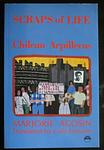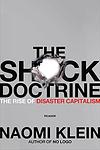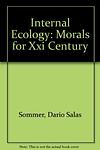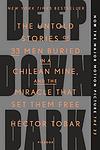The Greatest "Chile, Nonfiction" Books of All Time
Click to learn how this list is calculated.
This list represents a comprehensive and trusted collection of the greatest books. Developed through a specialized algorithm, it brings together 300 'best of' book lists to form a definitive guide to the world's most acclaimed books. For those interested in how these books are chosen, additional details can be found on the rankings page.
Genres
The "Chile" category in books encompasses a diverse range of literature connected to the South American country known for its long, narrow strip of land that stretches between the Andes mountains and the Pacific Ocean. This genre includes works by Chilean authors, historical accounts, cultural studies, travel guides, and political analysis. It covers a variety of subjects such as the nation's rich literary tradition, with Nobel laureates like Pablo Neruda and Gabriela Mistral; the tumultuous political landscape marked by the dictatorship of Augusto Pinochet; the unique geography and biodiversity; and the vibrant indigenous Mapuche heritage. Books in this category offer readers insights into the soul of Chile, from its poetic landscapes and urban dynamics to its complex social and political fabric, providing a multifaceted exploration of Chilean identity, resilience, and creativity.
Countries
Date Range
Reading Statistics
Click the button below to see how many of these books you've read!
Download
If you're interested in downloading this list as a CSV file for use in a spreadsheet application, you can easily do so by clicking the button below. Please note that to ensure a manageable file size and faster download, the CSV will include details for only the first 500 books.
Download-
1. The Voyage of the Beagle by Charles Darwin
This book is a vivid and exciting travel memoir as well as a detailed scientific field journal covering biology, geology, and anthropology that demonstrates the author’s keen powers of observation, written at a time when Western Europeans were still discovering and exploring much of the rest of the world. The author's five-year journey took him from the coasts of South America, Australia, and Africa to the South Pacific islands, during which he collected and documented the natural history of these areas. The voyage and the specimens he brought back would later form the basis for his famous theory of evolution.
-
2. Scraps Of Life by Marjorie Agosín
"Scraps of Life" is a poignant collection of testimonies and reflections on the harrowing experiences of Chilean women who endured the brutality of the Pinochet dictatorship. Through a tapestry of personal narratives, poems, and letters, the book gives voice to the pain, resilience, and unyielding hope of these women as they navigate the aftermath of political repression and personal loss. The work serves as a powerful testament to the strength of the human spirit and the enduring quest for justice and memory in the face of unspeakable atrocities.
-
3. The Shock Doctrine: The Rise of Disaster Capitalism by Naomi Klein
This book explores the concept of "disaster capitalism", the idea that global capitalism thrives on disaster and chaos. The author argues that free market policies are often pushed through while countries are reeling from wars, natural disasters, or economic crises. She provides a historical analysis of these events, from Chile in the 1970s, to Russia in the 1990s, to the war in Iraq, demonstrating how governments and corporations exploit these periods of shock to implement economic reforms that would otherwise be rejected.
-
4. In Patagonia by Bruce Chatwin
In this travelogue, the author embarks on a journey through the remote and enigmatic region of Patagonia, located at the southern tip of South America. Blending history, legend, and personal anecdotes, the narrative weaves through the diverse landscapes and cultures of the area, as the author encounters a cast of intriguing characters, from outlaws to settlers, all while searching for traces of its storied past. The book is as much an exploration of the author's wanderlust and love for adventure as it is a portrait of the rugged, windswept terrain and the resilient spirit of the Patagonian people.
-
5. Paula by Isabel Allende
The book is a deeply personal memoir in which the author recounts the tragic experience of her daughter falling into a coma due to a rare illness. As her daughter lies in the hospital, the author begins to write a poignant letter that evolves into a narrative of her family's history, her own life story, and the political and cultural upheavals that shaped her world. Through this intimate narrative, she explores themes of love, loss, and resilience, offering a raw and heartfelt reflection on the events that have defined her life and the unbreakable bonds of family.
-
6. Internal Ecology Morals For Xxi Century by Dario Salas Sommer
This book delves into the intricate relationship between individual moral development and the broader ecological balance of our planet, proposing that the environmental crises of the 21st century are deeply intertwined with the moral and ethical decay observed in contemporary society. The author argues that by fostering a deeper understanding of our internal ecology—our thoughts, emotions, and spiritual well-being—we can cultivate a more harmonious relationship with the external world. Through a blend of philosophical insight and practical guidance, the text invites readers to embark on a journey of personal transformation as a foundational step towards addressing the global environmental challenges of our time, emphasizing the critical role of individual responsibility and ethical conduct in shaping a sustainable future.
-
7. A Brief History Of Neoliberalism by David Harvey
This book provides a critical examination of neoliberalism, tracing its origins and development from the late 20th century to its pervasive influence on global economics and politics. The author argues that neoliberalism, a doctrine advocating for free markets, deregulation, and reduction in government spending, has concentrated wealth and power in the hands of a few, leading to increased social inequality and environmental degradation. Through a detailed analysis of various countries' experiences, the book highlights the consequences of neoliberal policies and calls for a reevaluation of the current economic paradigm to address its shortcomings and create a more equitable and sustainable future.
-
8. Alive by Piers Paul Read
"Alive" is a gripping true story of survival, recounting the harrowing ordeal of a Uruguayan rugby team whose plane crashes in the Andes mountains in 1972. Stranded for over two months in the harsh, freezing wilderness, the survivors face unimaginable hardships, including avalanches, starvation, and the devastating decision to resort to cannibalism to stay alive. The book is a testament to the strength of the human spirit and the will to survive against all odds.
-
9. Deep Down Dark by Héctor Tobar
"Deep Down Dark" recounts the harrowing ordeal of 33 Chilean miners who were trapped deep beneath the Earth's surface for 69 days following a catastrophic collapse of the San José mine in 2010. The narrative delves into the psychological, emotional, and physical challenges faced by the miners as they struggled to survive in a dark, confined space, with limited food, water, and oxygen. The book also explores the global media frenzy surrounding the disaster and the miners' eventual dramatic rescue, highlighting the resilience of the human spirit and the power of collective hope and perseverance in the face of overwhelming adversity.
-
10. Upheaval by Jared Diamond
This book delves into how nations cope with crises and the factors that determine their success or failure in overcoming them. By examining several countries' responses to profound upheavals, the author identifies a set of common challenges and solutions that can guide societies facing similar issues. Drawing parallels between personal psychological coping mechanisms and the ways countries navigate crises, the book offers a unique perspective on resilience, adaptation, and the critical choices that shape the destinies of nations. Through detailed case studies, it explores the complex interplay between national identity, societal flexibility, and the capacity for self-assessment, ultimately providing insights into the processes that enable societies to survive and thrive in the face of adversity.
Reading Statistics
Click the button below to see how many of these books you've read!
Download
If you're interested in downloading this list as a CSV file for use in a spreadsheet application, you can easily do so by clicking the button below. Please note that to ensure a manageable file size and faster download, the CSV will include details for only the first 500 books.
Download








